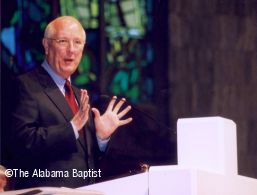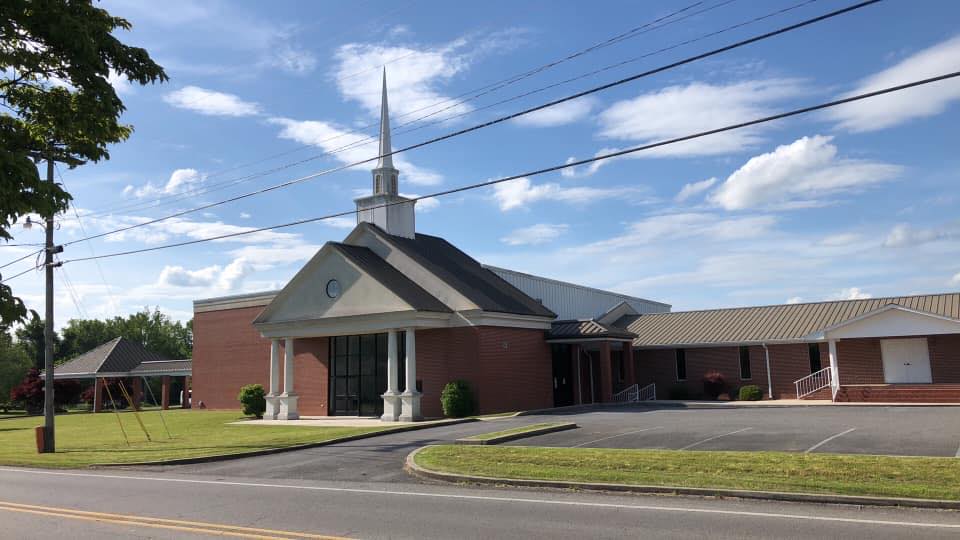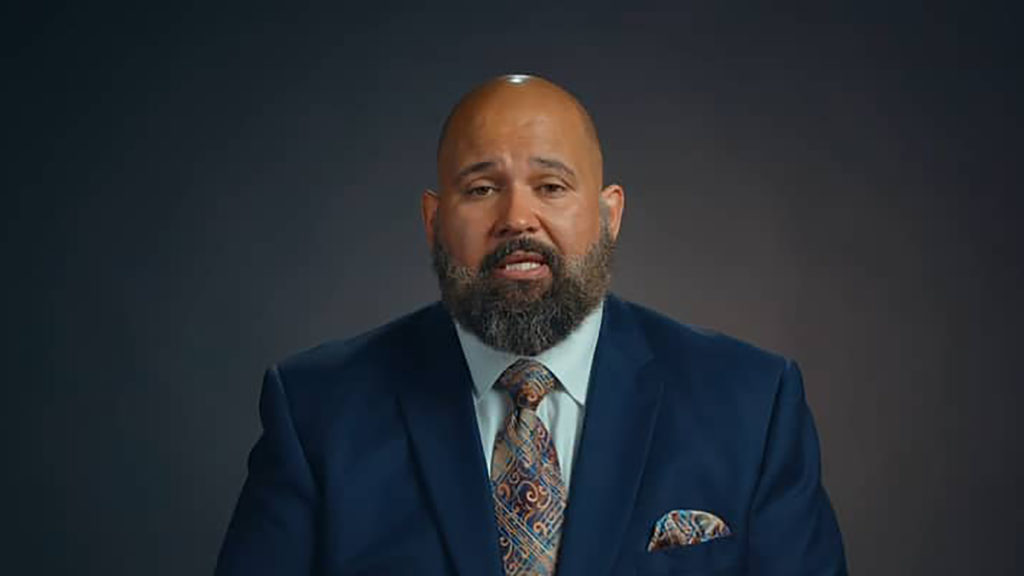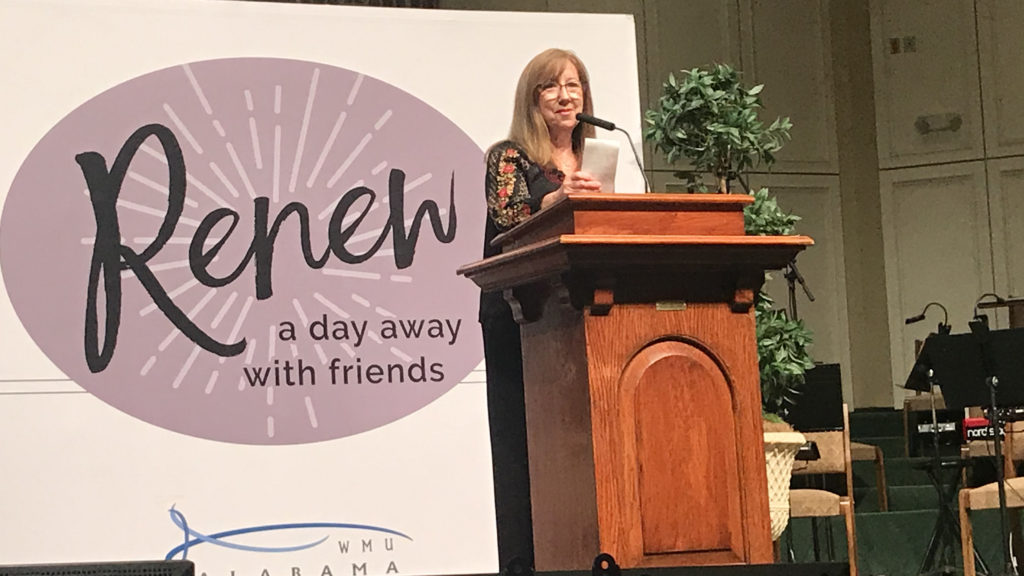Because “we are all broken … we are to reach out in Jesus’ name and in the love of Christ to sexual sinners everywhere and of every kind,” Timothy George reminded the more than 500 participants at the Church and Sexuality Conference on Feb. 29.
George, dean of Samford University’s Beeson Divinity School in Birmingham, said believers must live life on “that thin edge of nausea and sweetness” during the conference at First Baptist Church, Montgomery.
Balancing between these two extremes allows believers to love sinners enough to push past their own discomfort or lack of understanding to share Jesus Christ and be engaged.
“God calls us to be engaged, not disengaged, with all the wisdom and humility that we can muster,” he said.
At the same time, it is important to stay faithful to the sexual ethics revealed in Scripture, preach the whole counsel of God, rightly divide the Word of God, let the Church be the hermeneutic of the gospel and have more than one approach, George explained.
He also noted that the current state of affairs related to the sexual revolution did not just happen. It has been a long time coming, he said, as he walked through highlights from the past five centuries.
But while the changes were slower in the 17th, 18th, 19th and 20th centuries, George said changes are happening much more quickly in the current century.
“[The changes in the last decade have] happened so rapidly it’s hard to imagine to know where we are headed,” he said. “It has been in the making for a long, long time. How long it took us to get here but how quickly the sand has shifted beneath our feet.”
Russell Moore, president of the Southern Baptist Ethics & Religious Liberty Commission, added, “If we are a gospel people then that means that our articulation of a sexual ethic … is not a matter of our choosing. It is a mandate that Jesus has given us.
“We have to speak with confidence that can only come from God’s design and His gospel message — that is how we will become a Church for refugees from the sexual revolution,” Moore said.
“We cannot be afraid to be among people who are sinful and fallen,” he added. “[Because in ministering to them] we have a gospel opportunity to be a John 3:16 people in a John 4:16 world.
“You and I have a divine revelation … of sexuality and the pain and brokenness that comes with a deviation of that plan that allows us to speak with love and graciousness,” Moore said. “Those panicking are rooted in a lack of confidence. They believe what their opponents say about them, that they are on the wrong side of history.
“If you have the confidence that comes with the gospel, then you are resilient,” Moore said. “There will be a lot of refugees from the sexual revolution because it cannot keep its promises. We must keep the light lit. We speak truthfully.
“If all we are doing is standing up and screaming how opposed we are, if all we are doing is speaking of the wrongness of those who disagree with us, then we are not doing anything different than what the devil is already doing. We have more to say than ‘flee for the coming of the day of the Lord is here.’
“We have a Word that says ‘behold the Lamb of God that takes away the sin of the world.’”
It comes down to “embracing the tension,” said Jim Graham, pastor of Coosada Baptist Church, during a panel discussion on “Taking This Back To My Church.”
The panel consisted of Graham; Kathy Litton, national director of Ministry to Pastor’s Wives for the North American Mission Board; and Travis Coleman, longtime pastor of First Baptist Church, Prattville, and president of the Alabama Baptist State Convention.
Rick Lance, executive director of the Alabama Baptist State Board of Missions, moderated the panel as well as an earlier panel on “Religious Liberty in a Culture of Moral Decline.”
‘Grace and truth’
Graham said, “The key is loving people and trying to help people see that balance that Jesus was full of grace and truth. … We have to embrace the tension.”
Litton agreed, adding that we have to intensify our discipleship efforts and be transparent and real with those we’re discipling.
“We need to love our neighbor as ourselves,” Litton said. “You can love someone better when you understand them more … and we’ve got to show grace and we’ve got to be informed.
“We can’t pay attention to what’s on top of the iceberg in people’s life,” she added. “We need to learn who they are and not just what’s on top.”
Coleman noted that intentionality is needed especially where church leadership is concerned. That pertains to church policies, religious liberty and discipleship, he said.
The panel also suggested reviewing church bylaws about use of church facilities and possible protections that might need to be addressed.
During the previous panel discussion on religious liberty, Moore said pastors and churches would not have to worry about whether they would be legally forced to perform same-sex “marriages” in the future.
But, he added, the colleges and children’s homes and similar institutions are going to experience a battle related to same-sex relationships.
Also serving on the panel was Joe Godfrey, executive director of Alabama Citizen’s Action Program, who said Christians are facing a marginalization.
“It’s a matter of putting us on the periphery of society so that we don’t have any more of an influence,” he said.
There has to be a balance between compassion and love and speaking out against issues of morality, Godfrey noted.
“We have to be prophets of God and at the same time show compassion.”
And we can do that, Moore said, by engaging people in a long-term conversation about what each side believes.
Believers need to separate from the sin but never be afraid to be near sinners, he said, noting many times in the Church we do the reverse.
Christians can combat the changing culture by seeing people in terms of “the long-term sweep of their lives,” Moore said.
“Spend time dealing with people as people and not merely as issues,” he encouraged.
Along with hearing from the speakers in the conference’s plenary sessions and panel discussions, participants also attended 1 of 9 breakout sessions dealing with various issues relating to sexuality in culture.
There were a total of 193 guests listening and watching online during live stream of the conference.






Share with others: